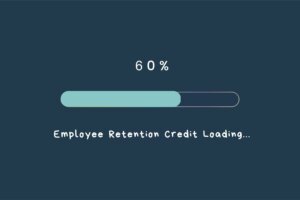A participant on a listserve raised the question: “What skills or personal qualities make one competent to ‘make the ask’ when meeting with a) an individual and b) a corporate representative?”
Because I have some very strong feelings/opinions about the issue and didn’t want to be angered/frustrated/annoyed by that discussion, I didn’t read the rest of the posting or any of the responses.
Not having read the referenced exchange, I can write what I will without concern that I might be stealing someone else’s thoughts/words.
So, to answer the question, I’ll start with a question.
Could a stranger walk into your home/business and ask you for a “significant” gift to a nonprofit organization … and get it ??
Chances are, if you admitted that stranger into your home/business, that all you’d give (if anything) would be “go-away” money – an amount you could spare, just to get that person to go away.
On the other hand, if that person was not a stranger, but someone with whom you had a relationship, chances are that the check you write would be bigger than the “go-away” amount.
But, if the gift that’s being sought is considered (by you, the solicitor, and the NPO) to be significant/major, it’s not likely to be solicited by someone who has just “showed up” at your door.
Before you can ASK for the major gift, there would have had to be created in the mind of the potential donor a reason, a motivation, why s/he would want to make that gift.
The idea is ludicrous that someone could just read an article or a book and become an effective solicitor. Asking for a significant gift has little-or-nothing to do with scripts, formulas, handouts, or training.
I always ask my classes who they think would be the best person to ask me for a major gift … to get me to want to make a major gift. Then, after getting knee-jerk answers (like a board member or the executive director), I ask who would know me well enough to know my hot buttons, my interests, my commitments and my ability to give.
Eventually, someone suggests that it might be my wife. Of course!
Now, obviously, my wife is not associated with every nonprofit that wants me to make a gift, but there are many other people who know me well enough to participate in my evaluation, cultivation and Ask. Certainly the people who know me can have a lot greater impact on my giving than could a stranger.
I can’t understand how people could think that reading a book on How To Make The Ask will make them more effective than someone who knows and/or is close to the prospect.
In case you’ve forgotten, Development is about relationships. If the book on how to ask doesn’t emphasize that building a relationship comes first, then the rest of the book can’t be worth very much.
So, back to the original question: “What skills or personal qualities make one competent to ‘make the ask’ when meeting with a) an individual and b) a corporate representative?”
The necessary skills are the ability to build and maintain substantial relationships; the ability to read/understand people so that you’ll know when it’s time to Ask; and, the understanding that Asking means asking for a specific dollar amount. The personal quality most needed is the willingness to Ask.
When and where to do the Ask, and deciding what the Ask amount will be, come directly from the depth of the relationship between the solicitor and the prospect.
Without the relationship, without the knowledge and understanding, all you’re going to get is go-away money. Is that what you want??
I refer you to this blog’s series of postings on Major Gifts
=-=-=-=-=-=-=-=-=-=-=-=-=-=
Have you heard about
The Fundraising Series of ebooks.
They’re easy to read, to the point, and cheap !! ($1.99-$3.99) 🙂
=-=-=-=-=-=-=-=-=-=-=-=-=-=
Have a comment or a question about starting, evaluating
or expanding your fundraising program?
AskHank@Major-Capital-Giving.com
=-=-=-=-=-=-=-=-=-=-=-=-=-=
If you’re reading this online and you would like to comment/expand on the above, or would just like to offer your thoughts on the subject of this posting, we encourage you to “Leave a Reply” at the bottom of this page, click on the feedback link at the top of the page, or send an email to the author of this posting. If you’ve received this posting as an email, click on the email link (above) to communicate with the author.
 Sections of this topic
Sections of this topic
















